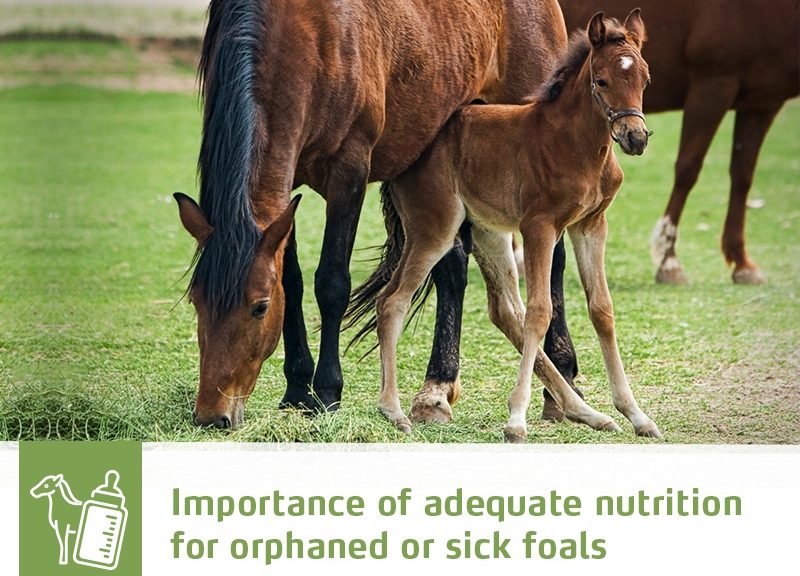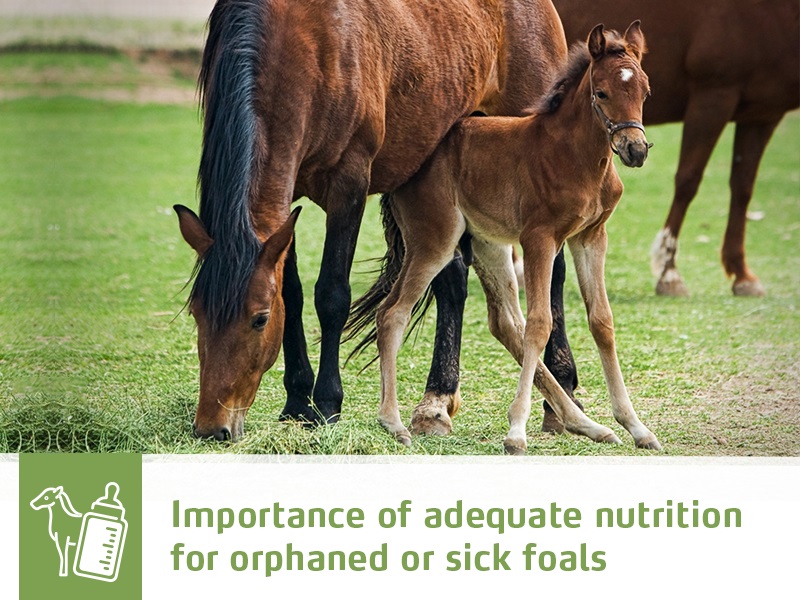Foals of different ages will have differing nutritional requirements. As such, the proper dietary composition will change as the foal grows. This is especially important as they develop from a newborn to a weanling.
The transition from being fed exclusively via the placenta, with maternal energy sources to the foal having to procure their own energy is a stressful metabolic transition. Normal neonatal (newborn) foals are at risk of hypoglycaemia, due to high metabolic rates and transition from womb life to outside life, and sick neonates are even more at risk of falling into severe hypoglycaemia. Hypoglycaemia, also called low blood sugar, can cause weakness, abnormal gait, collapse, intolerance to movement and if severe and unresolved, it might lead to seizures or death.
Foals, and baby animals in general (like lambs or calves), are particularly sensitive to adverse conditions like hunger and cold because they do not have energy or fat stores to draw upon in time of stress. Added to that, they have immense growth in a relatively short amount of time. A newborn foal of a light breed will gain in excess of 1 to 1.5 kg of body mass per day. In their first few days of life, a baby horse will consume from 15% to 25% of their bodyweight in milk, or about 8 to 15 litres of milk. Foals will begin to consume and adequately process solids within several weeks of life via a gradual transition from a milk exclusive diet to a forage based diet.
As such, an adequate and proper nutrition is paramount in dealing with abnormal situations such as an orphan or sick foal.
There are many ways to rear these animals into amazing, healthy adults but it’s something that requires solid knowledge of the horse’s needs and a strong commitment to make sure things like hypoglycaemia or digestive issues won’t hurt your animal. This is a situation that requires the expertise and attention of a vet, so if you find yourself in hands with a young horse with special needs don’t hesitate to contact your clinician and they will advise you on how to best proceed and help you create a feeding plan that fits their needs.
If you would like to know more about equine nutrition have a look at our course at: https://www.thepetprofessionals.co.uk/courses/product.php?u=P5T7PJ9EAJBCEAKZTKJ4XMRH
Would you like to know more about horses? Check our Equine Courses:

